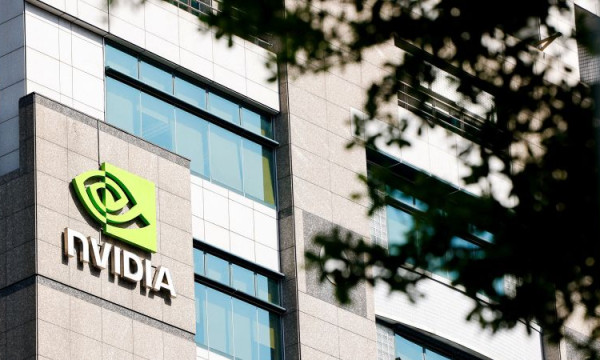Nvidia loses $5.5 billion as U.S. tightens restrictions on China chip exports.

Nvidia Faces $5.5 Billion Setback as U.S. Tightens AI Chip Exports to China.
Nvidia reported a $5.5 billion financial impact from the new U.S. export restrictions on H20 artificial intelligence chips sold to China which raised competitive stakes in artificial intelligence. The announcement of new export restrictions caused a 5% drop in Nvidia stock price before market hours started indicating market participants' apprehension about the company's Chinese market expansion potential. The H20 chip launched in 2024 retained reduced computing power compared to the banned H100 chip so Nvidia could continue selling it to China where it generated 13% of last year's revenue.
China used H20 to power DeepSeek’s R1 AI model which was developed at a lower price point than US equivalents. The successful launch of R1 by Chinese technology companies surprised global observers who then experienced a rapid growth of Chinese AI industry which propelled the regional markets forward. The U.S. Commerce Department requires specific export licenses for the H20 chips along with AMD’s MI308 and equivalent products because of national security concerns. Nvidia submitted a regulatory filing on Tuesday that revealed an indefinite licensing requirement alongside its $5.5 billion first-quarter expense related to inventory holding and purchase commitments and reserve creation ahead of its May 28 earnings release.
The financial impact of restrictions was labeled "relatively small" by Wedbush Securities analyst Dan Ives who described these restrictions as a "strategic blow" to Nvidia's operations in China. Ives explained the Trump administration considers Nvidia fundamental to the AI revolution because it has imposed these restrictions to slow Chinese technological progress. The United States strengthens its efforts to block China from acquiring advanced chips because these components are used for both military operations and artificial intelligence platforms. The Biden administration introduced restrictions starting in 2022 which began with advanced semiconductors and chipmaking equipment and progressed to cover globally manufactured products that use American technology.
The Commerce Department supported these measures through its explanation that they support President Trump's national security and economic protection goals. The indefinite licensing procedure remains unclear because Nvidia has decided to refrain from providing additional information. The new export restrictions became expected following R1’s release because it generated bipartisan support for stronger regulations that opposed China’s fast-growing AI capabilities. The Chinese tech industry led by Huawei and Cambroon created H20 alternatives yet analyst Brady Wang from Counterpoint Research explained these solutions continue to fall behind in terms of performance and software development while Nvidia maintains its leadership position through superior ecosystem and manufacturing capabilities.
Investor confidence in DeepSeek's technology sector has caused major stock market rallies throughout Hong Kong and mainland China. Wang forecasts that China will experience a continuous widening of performance differences between Nvidia chips and those used by China although the nation demonstrates proficiency with its current hardware specifications. The U.S.-China trade war escalates as Ives foresees additional trade restrictions that he describes as economic warfare between the two nations. Ned Finkle of Nvidia expresses his criticism through a blog post which asserts that these measures threaten worldwide AI development as well as American competitiveness through stifled innovation.
Advanced technology export rules will extend their restrictions across the world starting next month to stop adversaries from getting access through third countries. The new export restrictions endanger a vital market segment for Nvidia while forcing the company to face additional challenges as China advances its domestic chip industry. Nvidia now faces a challenging path ahead as tensions rise between geopolitical competition and its essential position in AI technology because of the $5.5 billion expense.

Dominic Maley is an American journalist recognized for his sharp and insightful reporting on social and political issues. His work is known for its depth, integrity, and the ability to highlight critical societal concerns.